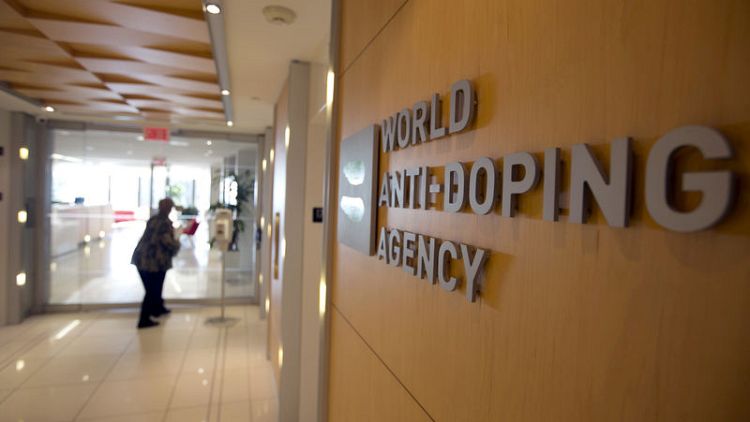By Sudipto Ganguly
MUMBAI (Reuters) - India's dope testing laboratory has already addressed most of the concerns raised by the World Anti-Doping Agency (WADA) about its standards and will apply within three weeks for its early reinstatement, a key government official told Reuters on Friday.
WADA said on Thursday the New Delhi-based National Dope Testing Laboratory (NDTL) has been suspended for up to six months for not conforming to international standards.
The suspension prohibits the NDTL from carrying out any anti-doping activities, including all analyses of urine and blood samples.
The WADA said NDTL could apply for early reinstatement if it satisfied its Laboratory Expert Group that it has addressed the issues.
Radhey Shyam Julaniya, India's sports secretary, said WADA had visited the laboratory last September.
"WADA pointed out the deficiencies in September 2018," Julaniya, who also serves as the NDTL's chief executive, told Reuters.
"The deficiencies have already been sorted out, complied with and overcome, and WADA was satisfied in 90% of the cases," he said.
"They wanted some more information and wanted validation through an international experts' visit. They have not been able to allot time and visit and said they will do it sometime in January next year.
"We explained we now have a full-time director, full employee strength and our performance is at par with any other country so send your team to take a decision. I told them 'you are administering medicine when the disease has been cured.'"
During the suspension, which took effect on Tuesday, any samples not yet tested or undergoing a confirmation procedure will be moved to another WADA-accredited laboratory.
According to the World Anti-Doping Code, the laboratory has the option to appeal to the Court of Arbitration for Sport against the WADA decision.
"We are taking legal opinion while preparing all the extra paperwork WADA asked for," said Julaniya, who refused to call the WADA decision a setback.
"It generally takes four months for the paperwork but we will prepare it in three weeks and send."
India's National Anti-Doping Agency (NADA) is confident the world body's decision would not hamper the country's fight against doping with the next Olympic Games in Tokyo less than a year away.
"The anti-doping programme of NADA does not get effected," NADA director general Navin Agarwal said in an email. "The pre-Olympic testing will continue as planned."
Julaniya said laboratories in some European countries charge four times, and in some cases 10 times, more than what testing a sample at the NDTL costs.
He said the NDTL was encouraging "more and more" East European and African nations to test their athletes' samples in India.
"Informally they wanted that we should have a different rate for international samples and for national athletes," Julaniya said, ruing that India does not have a representation on the WADA board, something they want to fix in the near future.
"We took the position that if our rates are lower, the other laboratories should reduce their rates rather than us increasing because this is a service and not a business.
"I do not rule out that there might be some business interest of the other laboratories. This is basically a message to the East European and African countries that don't go to India, their laboratory is discredited."
(Reporting by Sudipto Ganguly; editing by Amlan Chakraborty)
